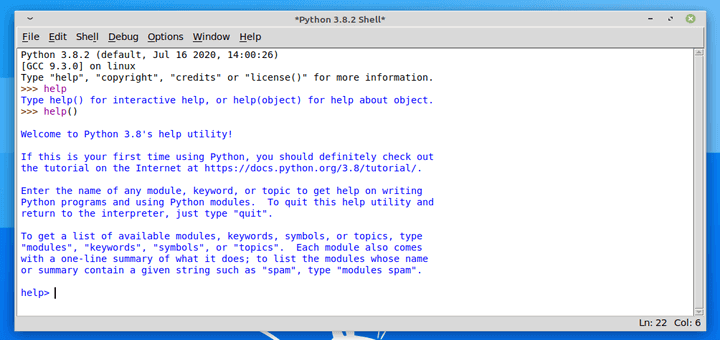

- Install python 2.7 ubuntu server 14.04 install#
- Install python 2.7 ubuntu server 14.04 update#
- Install python 2.7 ubuntu server 14.04 upgrade#
- Install python 2.7 ubuntu server 14.04 code#
You should be able to use the new version by running “python3.6” (so your version check would be “python3.6 -V”, not “Python-3.6 -V”). You might have already figured this out, but in case you haven’t – your comment uses an incorrect binary name. Pip 9.0.1 from /usr/local/lib/python3.6/site-packages (python 3.6)
Install python 2.7 ubuntu server 14.04 install#
This will also configure PIP for you to install Python modules. Let’s check the version installed of python using the below command. Make altinstall is used to prevent replacing the default python binary file /usr/bin/python.įinally, you have successfully installed Python 3.6 on your system. With make command altinstall, to install it as separate Python, This will not overwrite the existing installation. We use -enable-optimizations option with configure command to enable additional supports like SSL, bz2 support.
Install python 2.7 ubuntu server 14.04 code#
Now use below set of commands to compile Python source code on your system. You can also download the latest version in place of specified below. Sudo apt-get install libreadline-gplv2-dev libncursesw5-dev libssl-dev libsqlite3-dev tk-dev libgdbm-dev libc6-dev libbz2-devĭownload Python using following command from python official site. sudo apt-get install build-essential checkinstall Use the following command to install prerequisites for Python before proceeding to the next steps. To know more about this version visit Python official website. This article will help you to install Python 3.6.10 on Ubuntu and Linuxmint operating system. This Python version is available to download and install.

Install python 2.7 ubuntu server 14.04 update#
Update to my previous command: after waiting 5 more minutes, the “Copying files to the temporary directory.” succeeded, and it’s all working on my Ubuntu 14.04. Type /opt/python279/bin/python -V and it will show the version 6) You can delete it later with sudo dpkg -r python-2.7.9

sudo checkinstall -pkgname python-2.7.9ĥ) That’s it. We will provide custom package (python-2.7.9) name to identify it later.

It will create deb package and install it (so it can be easily removed later if needed, for example).
Install python 2.7 ubuntu server 14.04 upgrade#
So here are the steps to get separate installation of python2.7.9 leaving default 2.7.6 intact 1) You have clean Ubuntu 14.04 and now it’s time to install some important packages sudo apt-get update sudo apt-get upgrade sudo apt-get install build-essential sudo apt-get install libreadline-gplv2-dev libncursesw5-dev libssl-dev libsqlite3-dev tk-dev libgdbm-dev libc6-dev libbz2-dev sudo apt-get install checkinstallĢ) Now let’s fetch python’s source and extract it to our home directory mkdir ~/Downloadsģ) It’s time to compile to to a separate directory (say /opt/python-2.7.9) sudo mkdir /opt/python279Ĥ) Here is an important step – we are not going to make install it, but use checkinstall instead. I like ssl.create_default_context a lot – saves a lot of work when dealing with HTTPS. But python2.7.6 lacks very usefull module – ssl ( ). Ubuntu 14.04 ships with python 2.7.6 and uses it a lot for it’s internal needs.


 0 kommentar(er)
0 kommentar(er)
